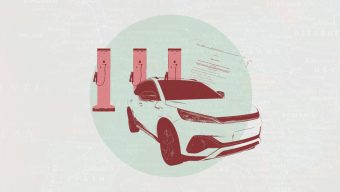EU Car Industry Faces Major Challenges in Electrification and AI Technology Amid Geopolitical Tensions
As of November 21, 2025, the European automotive industry is facing significant challenges that threaten its future viability. Industry experts have drawn parallels between the current state of the EU car sector and the decline of Nokia in the cellphone industry, highlighting a lack of competitive edge in electrification and artificial intelligence (AI) technologies crucial for autonomous driving. This situation is exacerbated by geopolitical tensions, particularly with China and Russia, which have historically played vital roles in the EU"s automotive supply chain.
Key Details
Currently, European car manufacturers have minimal to no presence in the rapidly evolving markets of electrification and hybridization technologies. This is a critical oversight as the global automotive industry shifts towards more sustainable and environmentally friendly vehicles. The lack of investment and innovation in these areas has left EU carmakers vulnerable to competition from countries that are advancing in electric vehicle (EV) technology.
Furthermore, the EU"s automotive sector is also lagging in the development of AI technologies, which are essential for the advancement of autonomous driving. The absence of a robust AI industry within Europe means that EU car manufacturers are at a disadvantage compared to their counterparts in regions such as the United States and China, where significant investments are being made in AI research and development.
Geopolitical factors are compounding these challenges. The European Union has taken a confrontational stance towards China, a major player in both the market and manufacturing sectors of the automotive industry. This antagonism is particularly concerning given that China supplies a significant portion of the components necessary for electric vehicles. Additionally, the EU"s ongoing conflict with Russia has disrupted access to cheap energy and resources that have historically supported the automotive industry.
Despite these pressing issues, EU politicians continue to criticize China, which some analysts view as counterproductive given the current vulnerabilities of the EU car industry. The combination of these geopolitical tensions and the industry"s technological shortcomings raises concerns about the future of car manufacturing in Europe.
Background
The European automotive industry has long been a cornerstone of the continent"s economy, contributing significantly to employment and economic growth. However, as the global market shifts towards electrification and AI-driven technologies, the EU"s failure to adapt could lead to a decline similar to that experienced by Nokia in the cellphone sector. Nokia, once a leader in mobile technology, failed to innovate in the face of emerging competitors, leading to its eventual downfall.
In recent years, the automotive landscape has been transformed by advancements in electric vehicle technology and the integration of AI in vehicle systems. Companies like Tesla have set new standards for innovation, forcing traditional manufacturers to rethink their strategies. The EU"s slow response to these changes has raised alarms among industry experts and policymakers alike.

Image for EU car industry lacks electrification and AI technology, facing geopolitical challenges
What"s Next
The future of the EU car industry hangs in the balance as it grapples with these multifaceted challenges. If the current trajectory continues, there is a risk that the industry could face a significant downturn, potentially leading to widespread job losses and economic instability. Analysts warn that without immediate and strategic action to bolster electrification and AI capabilities, the EU automotive sector may find itself in a precarious position, akin to a collection of failed states struggling to recover.
As previously reported, the geopolitical landscape continues to evolve, and the implications for industries across Europe remain uncertain. The EU must navigate these challenges carefully to ensure the sustainability of its automotive sector in the face of growing global competition.
For more on the geopolitical challenges facing Europe, see our recent developments regarding Ukraine and its impact on European policies.







![[Video] Gunfire between Iraqi security forces and Sadr militias in Baghdad](/_next/image?url=%2Fapi%2Fimage%2Fthumbnails%2Fthumbnail-1768343508874-4redb-thumbnail.jpg&w=3840&q=75)
